The hotel sector globally is becoming more committed to low-carbon emission tourism. Nowadays, to remain competitive the hospitality industry needs to consider more than simply accommodating guests comfortably and operating efficiently. Promoting green practices has become a responsible and relevant marketing tool for hotels, restaurants and tourist attractions to entice travelers to choose their location among the many options.
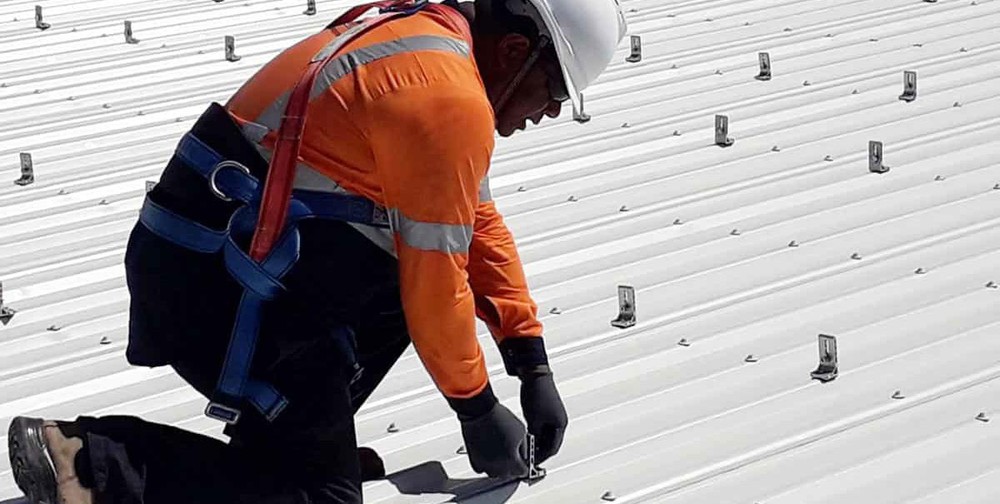
Fiji’s Renewable Energy Goal
The Fijian government has also demonstrated to the world it is taking climate change seriously by setting an aggressive renewable energy goal of 99% by 2030. As Fiji’s fastest-growing industry, tourism is logically a key focus area to transition to renewable energy as soon as possible. Although renewable energy is an umbrella term that refers to several technologies such as wind, hydro and biofuels, solar is often the most accessible and appropriate option.
Solar Photovoltaics (PV) is a proven, safe and efficient technology that is easy and affordable to connect to the current electricity infrastructure. Vision Energy Solutions’ Installation Manager, Mr. Kini Koroi shared the most common reasons businesses chose to invest in solar, “First, businesses want access to reliable electricity, without dependence on diesel generators. Second, everyone wants to lower their electric bills and cut operating costs. Third, solar is a real competitive marketing advantage to draw environmentally conscious customers, clients, and guests.”
Hilton Fiji Goes Solar
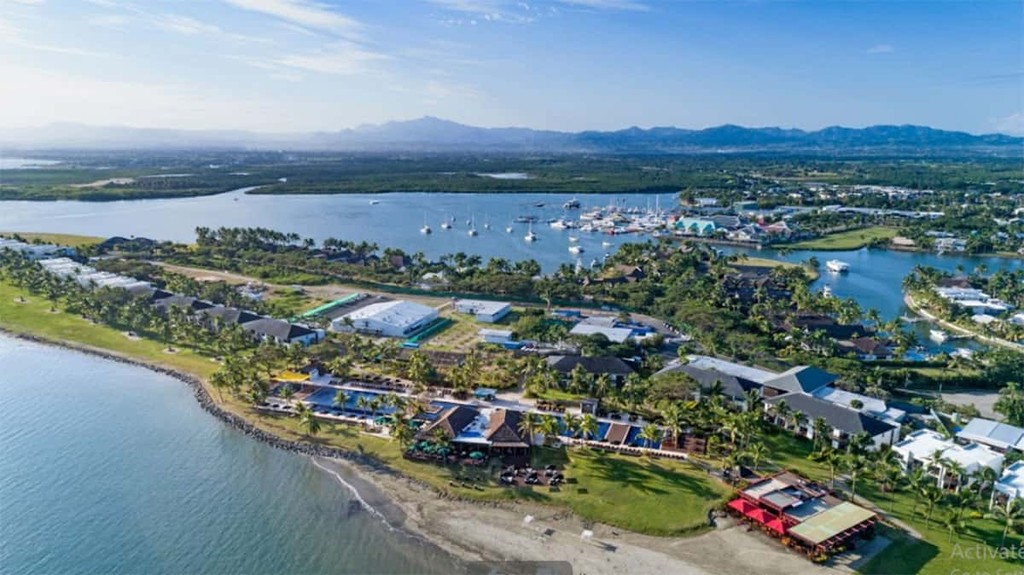
Hilton Worldwide confirms its commitment to sustainability as it states on their website, “Hilton continues to explore new ways to reduce carbon emissions and improve energy efficiency across our business.” It is therefore not surprising Hilton Fiji Resort & Spa, Denarau Island is partnering with Vision Energy Solutions (VES) to construct a 480 panel solar PV system. The project will be completed in late 2019 and will have a total capacity of 158kWp to power the general operational areas of the back of house (BoH) building. The BoH functions, that guests typically do not see, will soon be powered by the sun. The solar powered operations will include food preparation, security, engineering, maintenance, housekeeping, and general administration offices. Any excess power generation will be used in the other common areas of the resort.
This specific solar system will leverage an intelligent power inverter system that maximizes energy production yield. Increased energy production on a similar initial capital investment means the return on investment (ROI) will be higher over the system’s 25-year lifespan. Channa Silva, VES Engineering Consultant adds, “Hilton Fiji will soon enjoy safe, reliable and green energy in some of their operations, with the added benefit of no inflationary risk, as their cost of energy will be locked in for 25 years.”
“Educating the general public, and especially hospitality leaders about the benefits of solar is one of my core responsibilities. Therefore, we are committed to a highly visible presence at the annual Fiji Hotel and Tourism Association (FHTA) tradeshow, HOTEC,” shares VES’ Business Development Manager, Srinath Dolage.
Corporate Energy Management Planning (CEMP)
In addition to solar and other renewable energy systems Vision Energy Solutions (VES) partners with tourism-related companies to integrate Corporate Energy management Planning (CEMP) solutions into their organizational management structures to realize long-term operational efficiencies and cost reductions. CEMP is a comprehensive administrative approach that systematically gives attention to energy management in an organization to continually improve or maintain maximal energy performance. CEMP involves continually passing through the cycle of making policy, planning and implementing actions, checking results, reviewing progress and making updates to sustainably affect organizational management, technical operations, and individual behavioral changes to maximize system performance.
Companies that implement a CEMP realize significant direct and indirect benefits, such as:
- Energy cost savings; lower monthly operating costs
- Improved operational efficiencies
- Improved maintenance, health and safety practices
- Reduced greenhouse gas emissions and carbon footprint
- Less exposure to changing energy prices by the utility provider
- Energy independence, supply security and reduced dependence on imported fuels
- Prioritization of no-cost and low-cost energy-saving opportunities in day-to-day operations
- Increased energy awareness and green initiative participation among staff
- Informed management decision-making
Many organizations start with an initial energy audit and uncover quick and easy adjustments that can make a big impact. As the company sees financial savings, they are incented to invest in capital improvements, like solar energy systems. Once again, VES is available to provide consultative guidance such as a complimentary solar feasibility assessment.
As a comprehensive solar solutions provider, Vision Energy Solutions is poised to lead Fiji’s eco-tourism, green travel and hospitality sectors to become more sustainable. If you have any questions about modern renewable energy solutions for grid-tied or off the grid energy systems, please contact us today.
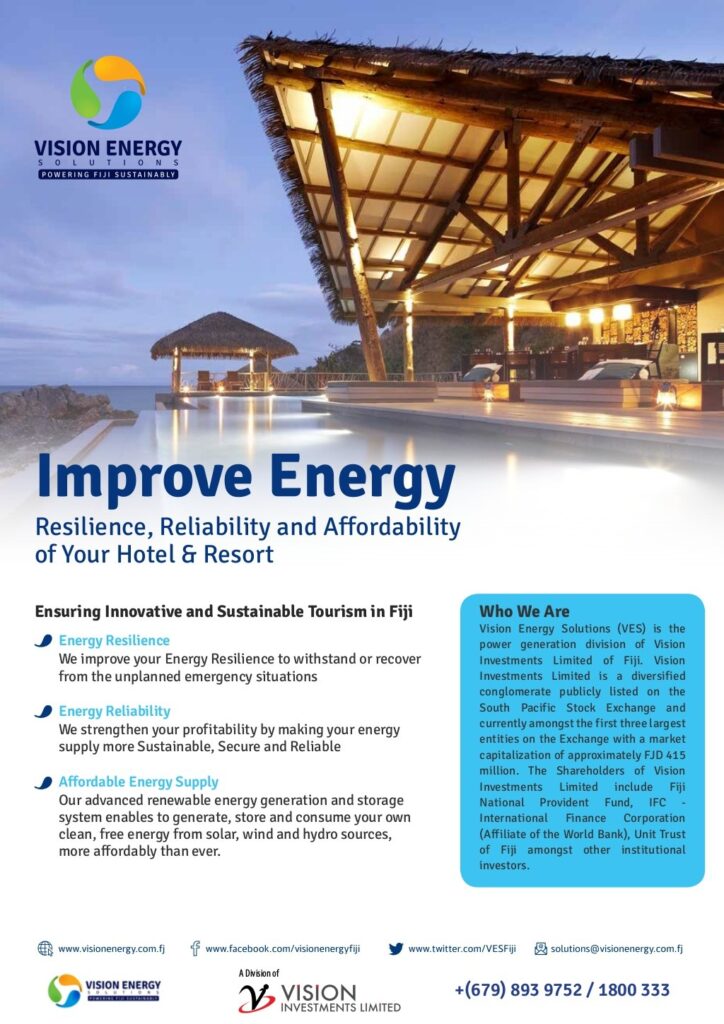
Improve Energy Resilience, Reliability and Affordability of Your Hotel & Resort from Vision Energy Solutions
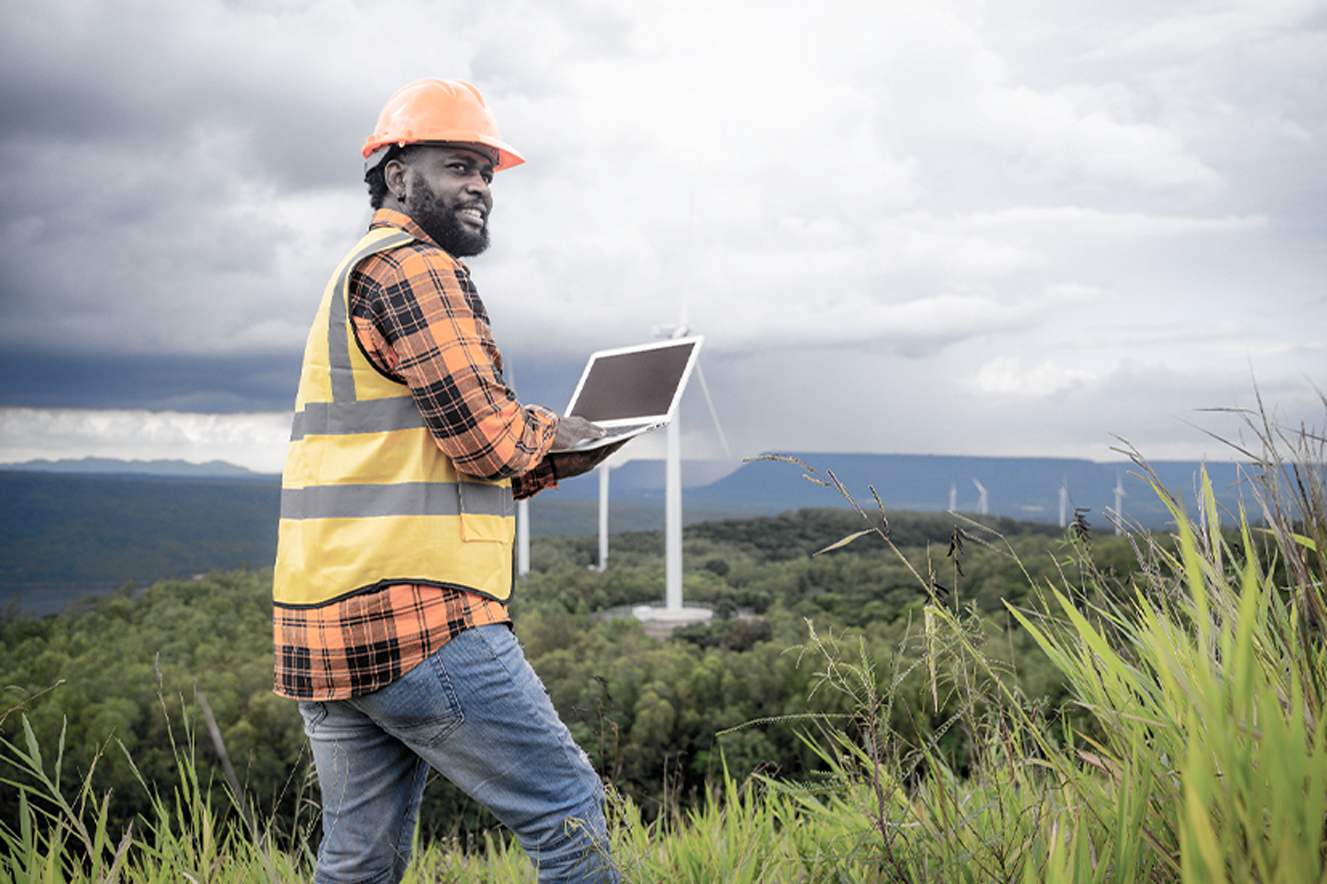
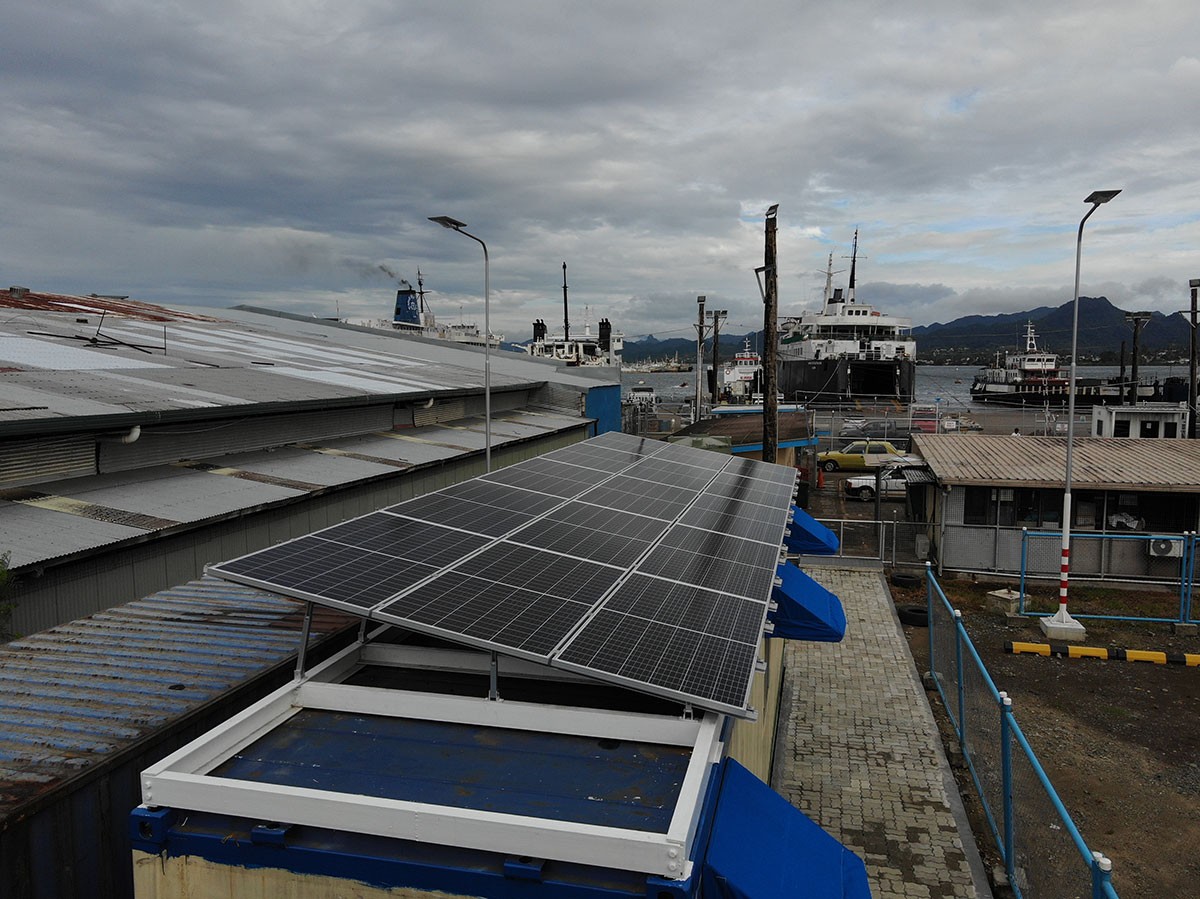

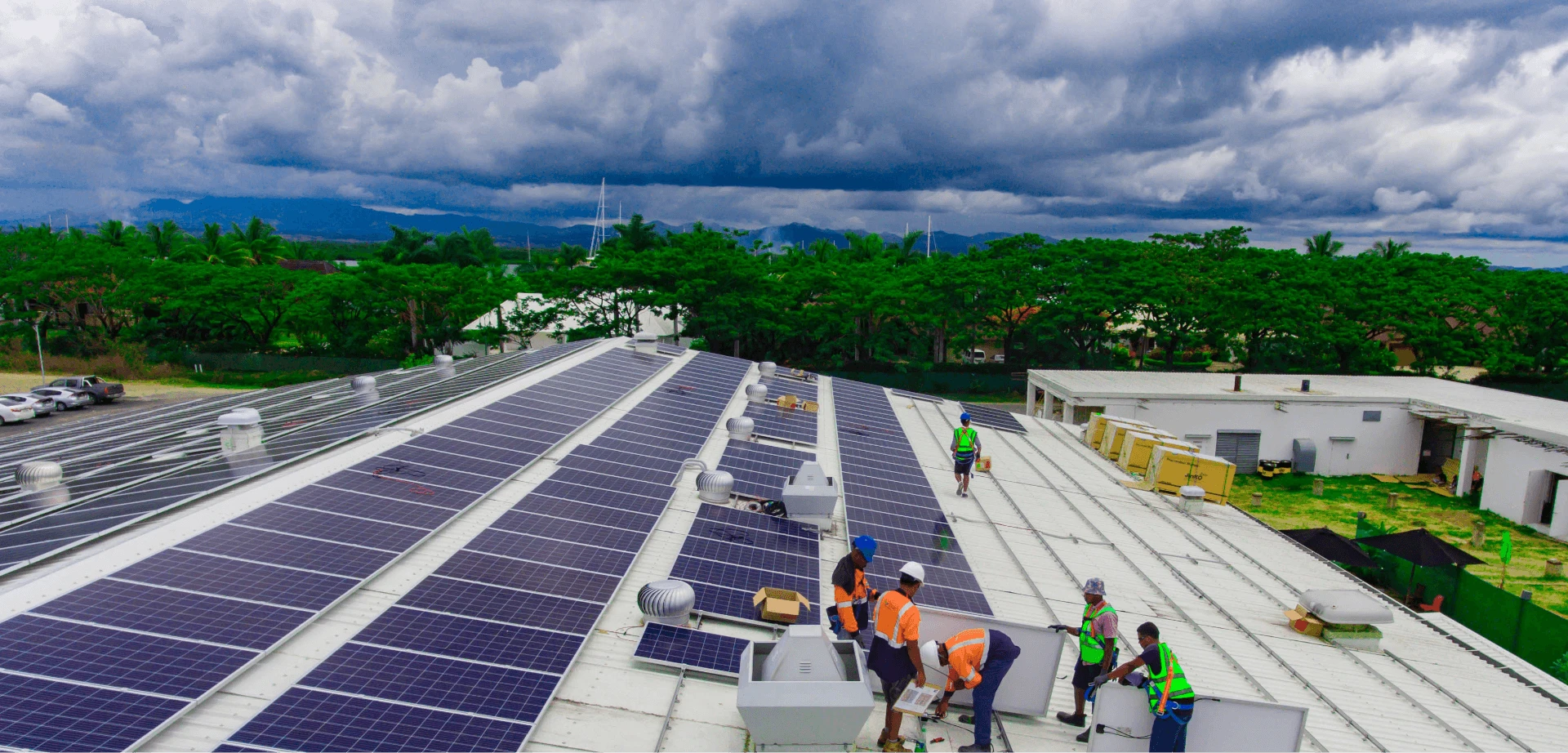
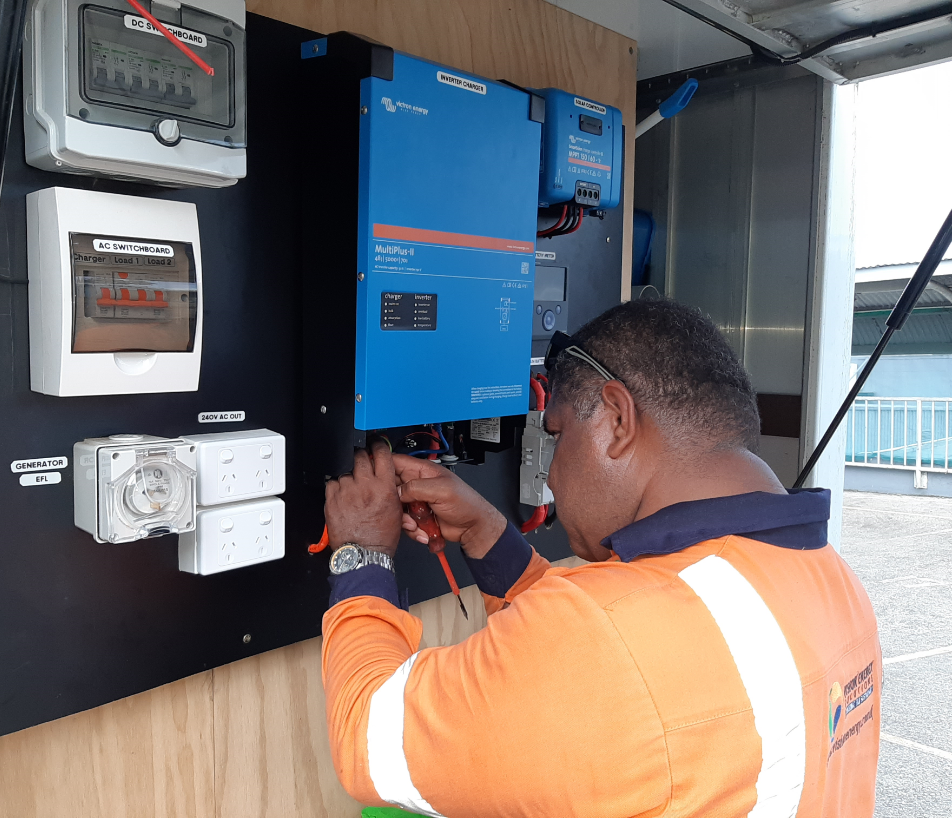

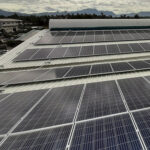
Wow, awesome weblog format! How long have you ever been running a blog for?
you make blogging glance easy. The whole look of your site is wonderful, as well as
the content! You can see similar here sklep
whoah this blog is great i really like reading your posts.
Keep up the good work! You know, lots of people are searching around for this info,
you can aid them greatly. I saw similar here: Sklep online
Howdy! Do you know if they make any plugins to help with SEO?
I’m trying to get my blog to rank for some targeted keywords but I’m not seeing very good results.
If you know of any please share. Kudos! You can read similar article here:
Najlepszy sklep
It’s very interesting! If you need help, look here: ARA Agency
Hello! Do you know if they make any plugins to assist with Search Engine Optimization? I’m trying
to get my blog to rank for some targeted keywords but
I’m not seeing very good results. If you know of any
please share. Thanks! You can read similar article here: Sklep internetowy
Hello! Do you know if they make any plugins to assist with Search
Engine Optimization? I’m trying to get my blog to rank for some targeted keywords but I’m not seeing very good gains.
If you know of any please share. Thank you!
You can read similar art here: Sklep
Hey! Do you know if they make any plugins to help with SEO?
I’m trying to get my website to rank for some targeted keywords but I’m not seeing very good results.
If you know of any please share. Thank you! I saw similar art here: Backlink Portfolio
Howdy! Do you know if they make any plugins to assist with
SEO? I’m trying to get my website to rank for some targeted keywords but I’m not seeing very
good success. If you know of any please share. Kudos!
I saw similar article here: Scrapebox AA List
Wow, fantastic blog format! How long have you ever been blogging for?
you make running a blog look easy. The whole look of
your web site is magnificent, as neatly as the content! You can see similar here sklep online